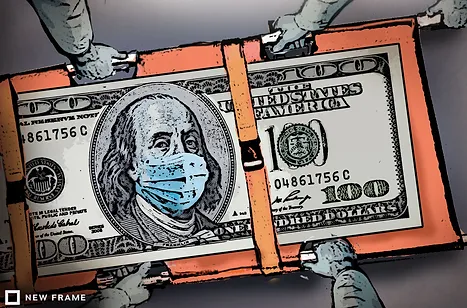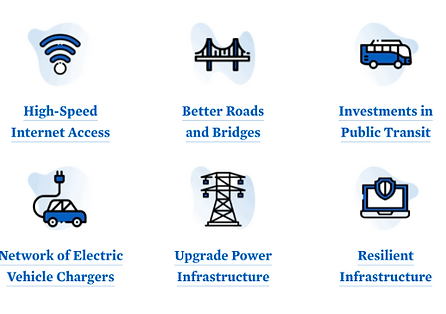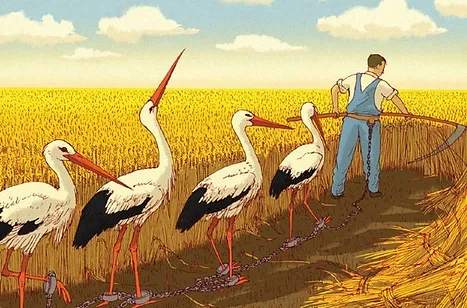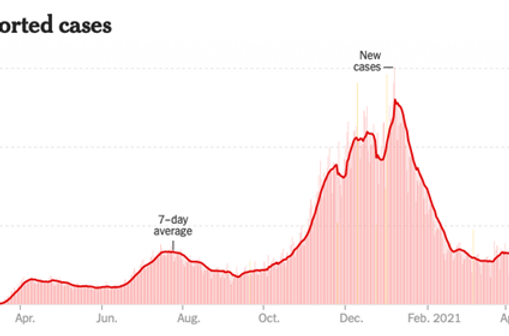
Humanity vs Capitalism Part 2: Crises Growth in Developing Countries

The first Humanity vs Capitalism article was published in May 2020, during the early stages of the lockdown. As the article suggested, the long duration of the lockdown and the still-not-fully-implemented vaccines damaged the world both socially and economically. More than 83 million people have been affected and more than 1.8 million people have died from COVID-19 since then. The most affected parts of the world are the developing countries which are already going through some kind of humanitarian or economic crisis. During the pandemic, access to services like basic healthcare and education decreased for the poorer populations, hence their humanitarian development cut off and their level of welfare fell. The fight between humanity and capitalism still goes on but it is harder on the people who live in the developing countries. In this article, we will look into the damages COVID caused to the developing countries’ economies, welfare, status in the global economy, and the foreseeable future for the developing world.
With the travel restrictions and people not leaving their houses for several months, sectors most affected by the lockdown have been tourism and oil production globally, when we consider the most of the developing economies around the world are based on these two sectors, we realize the lockdown affected these economies dreadfully. Additional to the fact that these economies need to maintain a certain level of economic growth and have access to foreign currency by participating in global trade in order to sustain their international and internal debts and spendings, a big portion of their population is employed in the sectors affected by the lockdown and the unemployment rates, not only in emerging markets but the whole world increased sharply since March 2020. Overall global trade is expected to be contracted 32% by the end of 2020 which is another bad news for the foreign-product dependent economies, this amount of decline will make the basic needs, such as food or hygiene products, inaccessible. (1)
Limited resources and inaccessible basic needs do not make the lockdown easier for the population, naturally. According to an IMF survey conducted in August, 70% of the people answered from 20 African countries have a risk of running out of food when the lockdown lasts more than two weeks. (2) Unclosing debts and contracting-economy do not help with the pandemic response, unfortunately, thus making the general state of the developing countries even irreversibly worse. The vicious cycle of debts, decreasing welfare, and COVID deaths starts with the lack of resources causing the pandemic response to be inadequate which will eventually cause the number of deaths, the unemployment rates, and the poverty of the population to increase; hence making the payments of those debts impossible, and it continues. On top of all that, the concern of access to vaccines appeared since the distribution of more than 3 vaccines started, it will be extremely difficult for developing countries to afford vaccines for their entire population without the budget for it. With the foreseen budget planning in the poor countries, only 10% of the population is expected to access the COVID vaccine in the poorest 70 countries. (3) The vaccine accessibility concerns will be added to the vicious cycle of money and health. Landlocked Developing Countries, among the rest, are the most affected group both unemployment-wise and the COVID deaths wise, as the global trade contracted and they were not able to import their needs. (4)
In 2020, the most economically contracted regions were South Asia, West Europe, and South America with less than -8% economic growth. As seen on the world map of economic growth in 2020, only a small portion of the world achieved economic growth while the rest contracted in order to minimize the bitter consequences of the pandemic. Global GDP (Gross Domestic Product) growth has been -4.4% so far which is a terrifying number compared to the -1% global GDP growth during the Great Recession in 2008. (5) As mentioned earlier, greater economic contractions in developing countries cause the general welfare and the COVID response to go downward spiral into an even worst-case scenario where the country has greater debt and cannot implement precautionary policies, such as curfew, financial aid, and job security, in order not to shut down the economy, hence making the number of cases and COVID deaths increase even faster. According to the United Nations Development Programme (UNDP), developing countries face the possibility of losing more than $200 billion income, as expected after this estimate, the economic impact of COVID may push 100 million people into extreme poverty in 2020 by the World Bank’s projection. (6) These numbers are clearly showing that the crises growing among the developing countries will be more lasting and harder to reverse than the developing countries can afford.
Last but not least, the gender inequality issue in developing countries requires consistent work and implementation in order to make progress. Different from the developed countries, the gender inequality issue is more about the basic needs and daily struggles such as access to education, hygiene products, or healthcare in developing countries. During the pandemic, most of those basic needs became inaccessible, hence making gender inequality even greater. With the COVID response aid being more fatally important, 4% of aid resources were dedicated to programs focussed on gender equality as the main objective. Compared to the share in 2017-18 being %42, we can say the pandemic interrupted the gender equality progress. We have to mention the worldwide effects of the COVID on women, especially women in the healthcare sector. The fact that 70% percent of people employed in the healthcare sector are women, and the unpaid care and domestic work are provided %75 by women on average globally makes women face higher risks of both income loss and being infected with COVID. Domestic violence, sexual exploitation, and abuse cases, which mostly women are the subject of, have increased on a global scale due to the lockdown. (7)
Before we come to any conclusions about which will be the winner of this unending fight, we need to suggest some solutions and consequences of those solutions. Saving human lives should be the priority, first of all. Second of all, making people’s lives better and providing basic needs should be the next goal of the states. To achieve these goals, economic compromise is inevitable. Even though a global foreign exchange or debt reform may be required to undo the damages after it is over, we have to put human lives first, not the stability of the global economy, and provide every person’s need of housing, nutrition, hygiene, healthcare, job security, and education to minimize the number of deaths and the cases. With more than 1.8 million people dead and more than 83 million infected, the governments and the international institutions must take this seriously and put the capitalistic goals aside. Hopefully, after the vaccines are implemented and we overcome the pandemic, we may see the core of the problem is prioritizing the money and not fixing the system that does not allow people to live humanely. In the first place, if the production of the “traditional” and nutritional foods in China was adequate and accessible for everyone, no one would be hunting any wild animals and eating them while being aware of the risks of getting infected with such a deadly disease. This situation is not special to China, any developing country has a similar flaw in their citizens’ condition of living, some have inadequate food resources, some do not have access to clean water, some have everlasting housing problems. Aside from their own problems, one common solution they need is money. Without ensuring the human lives are more important than the debts of the country they are living in, we cannot assume there will not be any other global disasters that will cost millions of lives. In conclusion, unless the world starts to work for humanity to win, capitalism will always be one step ahead of us.






